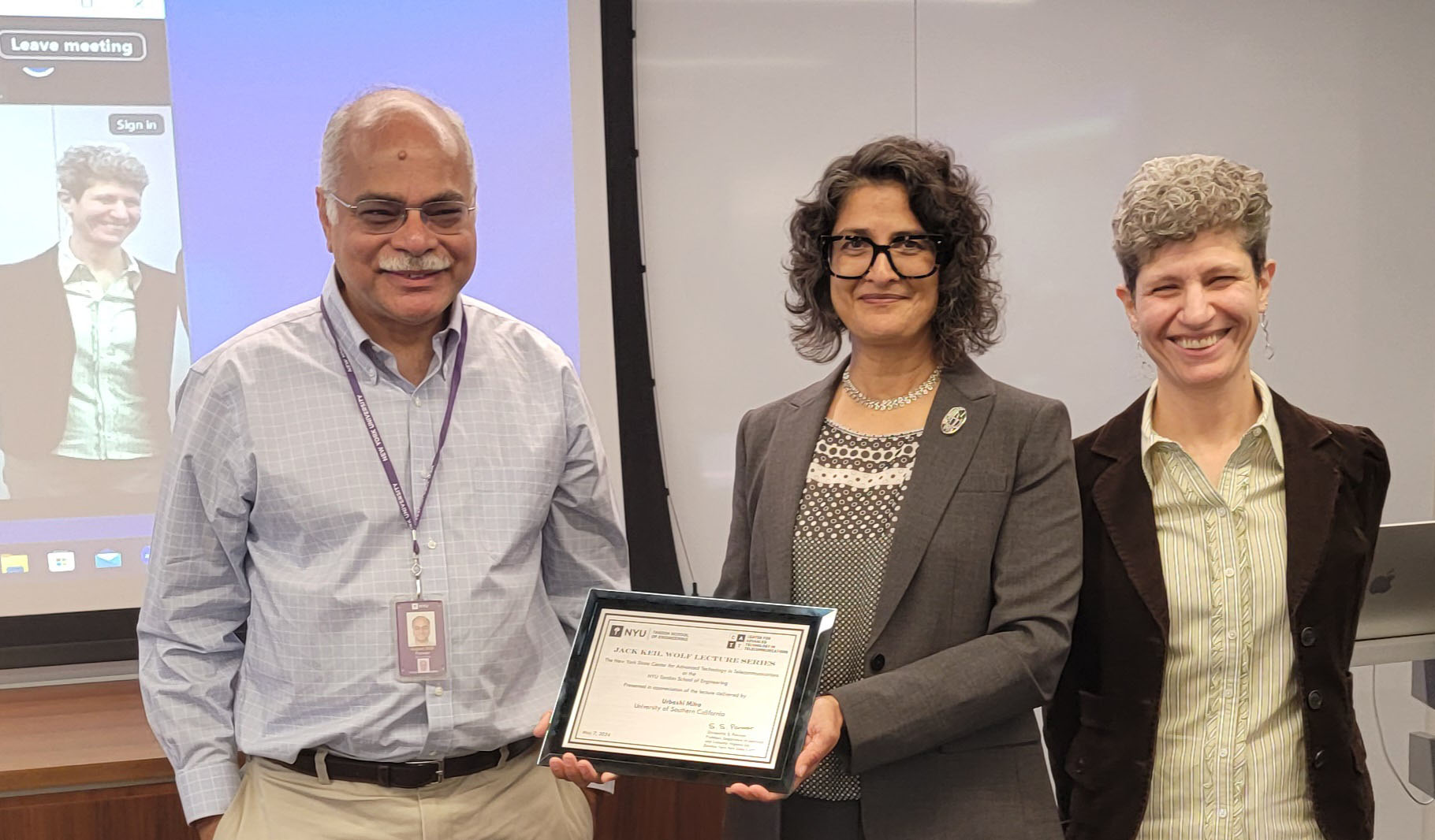Date & time: Tuesday, May 7, 2024 at 11 am EST
Location: 370 Jay Street, 8th floor, seminar room, Brooklyn, NY 11201.
Abstract: Securing signals from unintended eavesdroppers has become an increasingly important problem with the emergence of the Internet-of-Things. Herein, we examine learning problems in signal processing that are inherently hard without key side information. In particular, we exploit necessary resolution limits for classical compressed sensing problems. To limit an eavesdropper’s capabilities, we create an environment for the eavesdropper wherein the appropriate compressed sensing algorithm would provably fail. The intended receiver overcomes this ill-posed problem by leveraging secret side information shared between the intended transmitter and receiver. Two scenarios are considered: one for communication over a wireless channel where a novel block-sparsity based signaling strategy is employed and one for localization where novel structured noise is introduced to degrade the form of the eavesdropper’s channel. In the latter scenario, the transmitter designs a beamformer that introduces spurious paths, or alternatively spoofs the line-of-sight path, in the channel without having access to the channel state information. Both far-field and near-field cases are considered for the private localization. In both private communication and private localization, the amount of secret information that must be shared is very modest. Theoretical guarantees can be provided for both cases. Preliminary results on the information theoretic limits of this form of private communication are provided. Proposed algorithms are validated via numerical results and it is seen that the eavesdropper’s capabilities are severely degraded.
Biography: Urbashi Mitra received the B.S. and the M.S. degrees from the University of California at Berkeley and her Ph.D. from Princeton University. She began her academic career at The Ohio State University. Dr. Mitra is currently the Gordon S. Marshall Professor in Engineering at the University of Southern California with appointments in Electrical Engineering and Computer Science. Dr. Mitra is a Fellow of the IEEE. She was the inaugural Editor-in-Chief for the IEEE Transactions on Molecular, Biological and Multi-scale Communications. Dr. Mitra has served as an Associate or Area Editor for multiple IEEE publications. Dr. Mitra was a member of the IEEE Information Theory Society’s Board of Governors (2002-2007, 2012-2017), the IEEE Signal Processing Society’s Technical Committee on Signal Processing for Communications and Networks (2012-2017, Vice-Chair 2024), the IEEE Signal Processing Society’s Awards Board (2017-2018), and the Chair/Vice Chair of the IEEE Communications Society, Communication Theory Technical Committee (2017-2020). She is the recipient of: the 2021 USC Viterbi School of Engineering Senior Research Award, the 2017 IEEE Communications Society Women in Communications Engineering Technical Achievement Award, a 2016 UK Royal Academy of Engineering Distinguished Visiting Professorship, a 2016 US Fulbright Scholar Award, a 2016-2017 UK Leverhulme Trust Visiting Professorship, 2016 IEEE Communications Society Women in Communications Engineering Mentoring Award, IEEE Communications Society (2015-2016) and Signal Processing Society (2024) Distinguished Lecturer, 2012 Globecom Signal Processing for Communications Symposium Best Paper Award, 2012 US National Academy of Engineering Lillian Gilbreth Lectureship, Student Best Paper Award, as co-advisor, at the International Conference on Signal Processing and Communications, Bangalore India 2012, the 2009 DCOSS Applications & Systems Best Paper Award, Texas Instruments Visiting Professor (Fall 2002, Rice University), 2001 Okawa Foundation Award, 2000 OSU College of Engineering Lumley Award for Research, 1997 OSU College of Engineering MacQuigg Award for Teaching, and a 1996 National Science Foundation CAREER Award. She is most recently, the general co-chair for the IEEE International Symposium on Information Theory, 2024, Athens Greece. Dr. Mitra has held visiting appointments at: King’s College, London, Imperial College, the Delft University of Technology, Stanford University, Rice University, and the Eurecom Institute. Her research interests are in: model-based machine learning, wireless communications, communication and sensor networks, biological communication systems, and the interface of communication, sensing and control.
